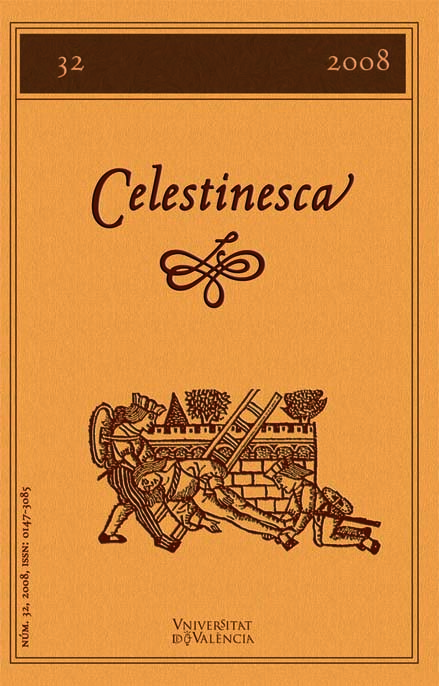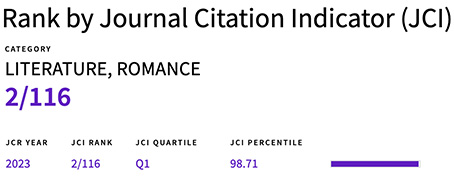El concepto filosófico de felicidad en La Celestina
DOI:
https://doi.org/10.7203/Celestinesca.32.20110Keywords:
Celestina, happiness, pessimism, philosophy, ethics Abstract
Abstract
This article studies the presence of the concept of happiness in La Celestina, as it was defined in the later Middle Ages, mainly shaped from the rediscovery of Aristotle's Ethics and the discussions it generated. A general impression of pessimism seems to emerge from La Celestina; it has sometimes been related to some particular philosophical conception which might be infered from the text (Epicureism, Stoicism, Scepticism, Petrarchan inspiration, Christian moralitie), or to the condition of the author himself, as a converso. Nevertheless, the idea of happiness appears in the text, and it can be linked to a more global philosophical background, the importance of which as an ideological and a formal screen cannot be ignored. I focus on the text of the Tragicomedia, and particularly on the context and situation of the lexical occurrences of the concept.
 Downloads
Downloads
Downloads
Published
How to Cite
-
Abstract626
-
PDF (Español)298
Issue
Section
License
![]() Celestinesca is committed to the dissemination of knowledge, that is why access to its contents is free and is ruled by a Creative Commons Attribution-NonCommercial-NoDerivatives 4.0 license.
Celestinesca is committed to the dissemination of knowledge, that is why access to its contents is free and is ruled by a Creative Commons Attribution-NonCommercial-NoDerivatives 4.0 license.
Authors retain the rights to their works. Therefore, they can disseminate them and deposit them in the repository, institutional or not, that they wish. However, they are kindly requested to do so by providing the full bibliographic reference and the corresponding DOI.
Celestinesca does not charge authors for submitting, processing, reviewing or publishing their articles.





